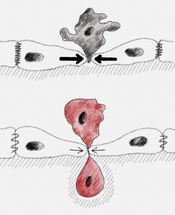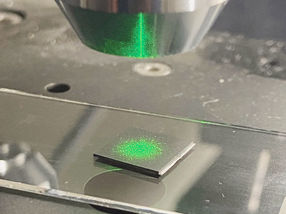Genetic screening before prescribing could benefit millions
Millions of UK patients could benefit from genetic screening before being prescribed common medications
Four million UK patients could benefit annually from genetic testing before being prescribed common medicines, according to new research from the University of East Anglia (UEA) in collaboration with Boots UK and Leiden University (Netherlands).

Bild von Arek Socha auf Pixabay
Researchers looked through 2019 NHS dispensing data across the UK to see how many patients are started on new prescriptions each year that could be potentially optimised by genetic testing.
They studied 56 medicines, including antidepressants, antibiotics, stomach ulcer treatments and painkillers where there are known drug-gene interactions.
And they found that in more than one in five occasions (21.1 per cent) there was the potential for a doctor or pharmacist to take action under international pharmacogenetic guidelines.
If this screening was applied to all new prescriptions, an estimated one in 11 (9.1 per cent) would lead to a change of drug or dose, affecting over five million dispensed items.
Depending on the results of individual pharmacogenetic tests, they might either get a higher or lower starting dose than normal or be more closely monitored during the early stages of treatment.
Pharmacogenomic testing services already working in the Netherlands show that specially-trained GPs and pharmacists can carry out pre-prescribing tests and use the results to give advice on safer and more effective prescribing, delivering better patient outcomes.
Essra Youssef, a research pharmacist at UEA's School of Pharmacy, said: "We know over 95 per cent of the population carry a genetic marker that predicts an atypical response to at least one medicine.
"Our study looked at nine of these genetic markers, affecting 56 medicines that are commonly dispensed by community pharmacies in the UK. The most common of these are weak opioids, antidepressants and proton-pump inhibitors, which are prescribed to reduce stomach acid.
"We wanted to see how pharmacogenetic testing, before being prescribed common medicines, could benefit patients.
"We found that around four million patients annually in the UK could benefit from having this new technology.
"Better selection of medicines based on a patient's genetic information could mean less side-effects and better treatment outcomes. This not only benefits the patient but also the NHS, as patients may not need to return to their GP so often to change their medication.
"It could also reduce hospital visits related to side effects of medicines. The testing process is quite simple in most cases, with a cheek swab sample collected and DNA analysed for genes related to medicines. As the cost of this testing continues to drop, the technology is more likely to represent good value for the NHS."
Marc Donovan, Chief Pharmacist at Boots UK, said: "We strongly believe that pharmacy has a key role to play supporting the wider accessibility and use of pharmacogenomics.
"Our work shows the benefits that patients and the NHS could get from rolling out a national screening programme as part of their plans to embed pharmacogenomics in clinical practice by 2025, and that this testing could be effectively delivered by community pharmacists.
"Last year, around four million people could have had a change in their prescribing, according to our figures. This would have reduced their risk of side effects and could have led to better clinical outcomes."





















































